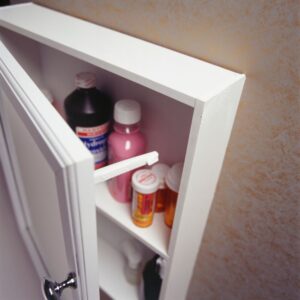 Medication Management — Your medications provide benefits and risks. The benefits to your health must outweigh the risks, or your doctor will not prescribe it. But considering the risks is a crucial factor.
Medication Management — Your medications provide benefits and risks. The benefits to your health must outweigh the risks, or your doctor will not prescribe it. But considering the risks is a crucial factor.
In fact, understanding the risks of taking medications is critical for your health and well-being. Medicine can have beneficial effects, such as treating diseases, relieving pain, or improving mood. However, they can also have unwanted or unexpected side effects, interactions, or addiction. These effects, interactions, or addictions can vary depending on the type, dose, and duration of the medication, your age, health status, and other factors.
There are several types of risks from medicine use, according to the U.S. Food and Drug Administration (FDA).
Types of risks
- Possibility of a harmful interaction between the medicine and a food, beverage, dietary supplement (including vitamins and herbs), or another medication.
- Medicine may not work as expected.
- Medicine may cause an additional problem.
The FDA offers a five-point plan to help you reduce those risks and benefit from your medications.
Communicate – Talk to your physician
-
- Keep an up-to-date written list of all the medications (even over the counter) and dietary supplements, including vitamins and herbs, that you use, including those you only use occasionally.
- Share this list with all of your healthcare professionals.
- Talk about any allergies or sensitivities you may have.
- Talk about anything that could affect your ability to take medicines, such as difficulty swallowing or remembering to take them.
- Inform your doctor if you are pregnant or might become pregnant or if you are nursing a baby.
- Always ask questions about any concerns or thoughts that you may have.
Know – Know your prescription and over-the-counter medicines
-
-
- The brand and generic names.
- What they look like.
- How to store them properly.
- When, how, and how long to use them.
- How and under what conditions you should stop using them?
- What to do if you miss a dose.
- What they are intended to do and when to expect results.
- Side effects and interactions.
- Whether you need any tests or monitoring.
- Always ask for written information to take with you.
-
Read – Read labels and follow directions
-
- Make sure you understand the directions; ask if you have questions or concerns.
- Always double-check that you have the right medications.
- Keep medicines in their original labeled containers whenever possible.
- Never combine different medicines in the same bottle.
Avoid – Avoid interactions
-
- Ask your physician and/or pharmacist if there are interactions with any other medications or dietary supplements, including vitamins and herbs, beverages, or foods.
- Use the same pharmacy for all your medicine needs whenever possible.
 Monitor – Monitor your medication’s effects and the effects of other products you use
Monitor – Monitor your medication’s effects and the effects of other products you use
-
- Ask if there is anything you can do to minimize side effects, such as eating before you take the medicine to reduce stomach upset.
- Pay attention to how you are feeling; note any changes. Write down the changes so that you can remember to tell your doctor.
- Notify your doctor of any side effects or any improvements.
Learn even more from the FDA’s “Think It Through“ page.
Medication management is crucial to the safe use of your prescription medicines. Please call the office if you have an questions or concerns regarding your medications.
PPMA is dedicated to our patients’ health. Learn how!




 Monitor – Monitor your medication’s effects and the effects of other products you use
Monitor – Monitor your medication’s effects and the effects of other products you use